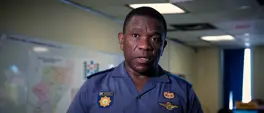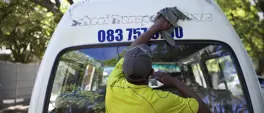Are kids better off with less (or no) homework? Here's what educationists say...
Tasleem Gierdien, 18 September 2024
18 September 2024 | 8:04'Copious' amounts of homework are NOT the answer!
Lester Kiewit speaks to Coralie Thompson, Principal at Sun Valley Primary and Professor Verbra Pfeiffer of the English Studies Department at UNISA about their views on 'no homework' at schools.
Listen below.
Over the years, some educationists have called for a rethink on how much homework children are given, with some saying that homework should be done away with because they should be taught what they need to know in the classroom.
The current principal of Sun Valley Primary School has opted to keep her predecessor's 'no homework philosophy' which was put in place in 2015 and says 'there is no deterioration in learning amongst learners'.
"I respect what the previous principal set in place. It's definitely a philosophy. There are pros and cons to it and needs to be reviewed constantly... we don't have it on paper that we agree or call it a policy... I agree with not having a policy. I don't like the term 'no homework' as I think it sends the wrong message. There's old school kind of homework we used to do and times are changing and we are moving with the digital era. Our school is an Apple distinguished school and every child has an iPad and we don't allow the iPads to go home... we use digital textbooks and things like that, so we've reviewed the philosophy after Covid while honing learners' specific skills during class."
- Coralie Thompson, Principal - Sun Valley Primary
Thompson explains how the 'no homework philosophy' works at Sun Valley Primary:
"At Sun Valley, we only give homework or things to do at home if it has a purpose. Planning is very important, so we give the parents what we're doing for the next two weeks, and so it's up to them what they want to do with their child.
"We train them to do assessments, how to study and time management, so there is no shock when they go to high school and suddenly have extra subjects," says Thompson.
We focus on personal performance tasks for every child with emphasis on 'time-on-task to teach time management in class' while stimulating the brain and movement before, during and after lessons. For example, sometimes kids exercise before a math lesson to help improve concentration, explains Thompson.
"Teachers try to do as much as they can in school and they are also available after school for kids to do extra work should they need to before sport," says Thompson.
"The biggest systemic problem in schools right now is reading with understanding," she claims.
"Part of the no homework philosophy is that learners have to do 20 minutes of reading every day. So, just because we're not calling it homework, it doesn't mean students are not learning anything at home."
Teacher-parent workshops are also conducted to help parents 'teach' their kids how to read, about phonics, how to study and time management at home without 'doing homework' in the traditional sense.
Overall, Thompson believes that traditional homework should be reassessed according to the context of learning today, the child's specific needs and the resources available to them.
"Parents also need to know where there child is at academically, so if they are struggling, interventions need to be put in place to help the child excel."
- Coralie Thompson, Principal - Sun Valley Primary
Meanwhile, Pfeiffer who studied 'no homework' policies and their effects on learners asks: how much homework is enough?
She believes that giving no homework is 'not realistic for every kind of student', and that the amount of homework should be evaluated based on every learner and teacher's specific needs.
Learners should also be given the chance to enjoy their childhood without being inundated with 'copious amounts of homework'.
However, doing homework 'mindlessly' is not the aim as learners should be learning extra skills like focusing or time management while doing homework, adds Pfeiffer.
"... it's not possible to do away completely with homework... my argument is that not everyone who doesn't get homework performs better academically."
- Verbra Pfeiffer, English Professor - UNISA
"So, it's not about giving copious amounts of homework because as a teacher - you have to ask: did I reach my objectives in my lesson, did I get through to the learner? If not, then of course, the learner would have to practice after the lesson and also give considerations that every learner is not on the same level."
- Verbra Pfeiffer, English Professor - UNISA
"We also have to consider the type of schools. There are privileged and underprivileged schools which shouldn't be compared because in some schools teachers are sitting with a class of 50 students and limited resources so homework and more parental support might be needed in that context..."
- Verbra Pfeiffer, English Professor - UNISA
"We have to remember that a child is still a child and they still need to experience growing up and they need to have moments where they zone out and do anything. So, it's not about giving copious amounts of homework as teachers; it's also the teacher's responsibility to ensure that the objectives are taught within the duration of the lesson."
- Verbra Pfeiffer, English Professor - UNISA
"It's also not about doing homework mindlessly; it's about teaching kids to focus, time manage and complete a task while doing homework."
- Verbra Pfeiffer, English Professor - UNISA
Scroll up to the audio player to listen to the full conversation.















